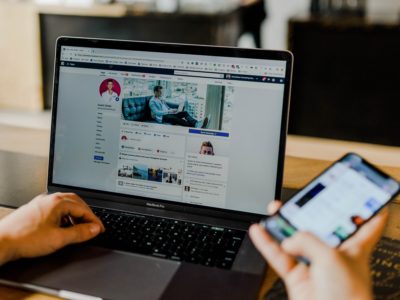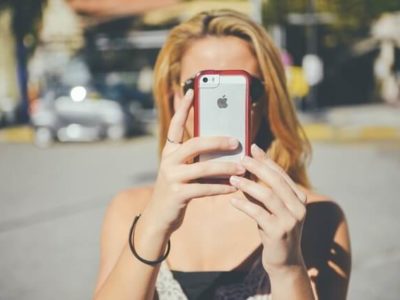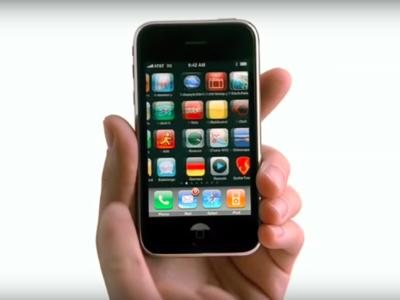How often do you take a break from your work to watch a couple of TikToks, and all of a sudden a full hour goes by? We’re all guilty. In fact, we sometimes don’t realize how much time we spend scrolling through our feeds. Given the pandemic, we feel as though there isn’t much else to do. Now more than ever, we must maintain healthy habits while plugged in, or we risk negatively impacting our mental health.
Check out what experts had to say about how to maintain a healthy relationship with social media.
1. Check in with yourself prior to (and during) scrolling
https://www.instagram.com/p/CA29JJKD6WO/
Why do you want to scroll through Instagram? Are you procrastinating homework or escaping responsibilities? “Lots of people use social media as a form of escapism,” said Saiyak Rakeeb, a digital wellness coach. “Social media can be harmful when the student is using it to self-medicate… that is, they are relying on social media to avoid feeling bad.” In this case, the intent is everything. Incorporate check-ins into your routine prior to (and during) scrolling and make sure you know where your intentions lie. If you want to disconnect from responsibilities or numb out difficult feelings, consider an alternative mindless scrolling.
2. Set time limits
https://www.instagram.com/p/B9zKsRlA0Ka/
Picture this: you take a quick social media break from your homework, but before you know it, two hours go by and you know everything about your crush’s trip to Spain in 2012. Ok, maybe not that specific, but the fact remains that it’s easy to waste time with no one there to hold you accountable… or so you thought. Most smartphones offer an option in settings to set “Screen Time” limits within each app. In addition, a few apps (available on both iPhones and Androids) manage your time on each social media site as well. If you have trouble with self-discipline or get distracted easily, consider setting your own boundaries and time limits on social media apps.
3. Follow accounts that spark joy
https://www.instagram.com/p/B_zrywPHfjl/
In addition to keeping in contact with close friends and family, one of the best parts of social media is following your favorite influencers, activists and celebrities for a glimpse into their lives. However, keep in mind that social media isn’t always an accurate depiction of daily life, especially for high-profile influencers and celebrities who make money promoting their aesthetically-pleasing-but-highly-unrealistic content. “We have to proceed with caution… this is your safe space. That means you control who you allow in this space,” said Jaclyn Amys MS LPCC, a licensed mental health therapist. “I highly encourage following accounts that increase feelings of joy, offer new information, or spark your interest… avoid following accounts that make you fall into the comparison trap.” Instead of filling your feed with unattainable, romanticized depictions of “real” life, find accounts that spread positive sentiments and mental health resources. Some personal favorites include @todayiamloved, @positivelypresent and @selfcareisapriority; their posts fill your feed with all kinds of joy, which we all need right now.
4. Prioritize your time on social media
https://www.instagram.com/p/CAnVv7PpO4E/
Considering our current circumstances (i.e. a pandemic forcing all of us to transition into remote work), an increase in daily screen time makes sense. That being said, you must acknowledge the effects of this increase on your mental health. Since you spend a lot of time online for work, keep in mind how much time you spend online for play. Use social media with purpose. Perhaps you could start that book review account you want to get off the ground, or share your art with someone other than your dog. Social media lends itself to personal branding; instead of mindless scrolling, try creating your own niche account and spread your joy across the platform.
5. Stay connected
https://www.instagram.com/p/B8Xe7ZTAfu4/
Whether through connecting with family on the other side of the country or exploring your passions and interests with like-minded people, social media provides a great resource to connect with others. “If used in a productive way, social media can open up many opportunities, provide valuable resources, help a person to feel less alone or isolated, and really be a tool that promotes wellness,” said Ericka Harrison-Bey M.S.Ed. Resident in Counseling, a crisis and trauma therapist. “It is a great way to find and connect with others on campus as well as in your various communities who are doing the work, education, outreach and raising awareness on topics one may be interesting in engaging with or learning more about.” For example, many individuals take to social media to provide awareness and resources on various social movements, such as current online conversations on Black Lives Matter. It all boils down to intention: What do you hope to gain from your social media experience? If your motivations lie in a good place (i.e. meaningful connections, self-education or community outreach), then your social media experience will be a positive one.
6. Take breaks from social media if you need
https://www.instagram.com/p/B_UwRwHnGyc/
Social media overwhelms many users with its incredible amount of content. Many professionals recommend taking breaks, which can last from a few hours to a few weeks—your choice. “Breaks should be intentional… short breaks are great, but it’s worth challenging yourself to take a long break at least once in your life,“ Rakeeb said. “However you choose to do it, it will teach you a lot about the relationship you have with your phone.” We never think about our reliance on social media, so an intentional break from your phone will teach you a lot. Next time you feel overwhelmed by scrolling through content, consider spending time away from social media and reflect on its impact on your wellbeing.
7. Don’t feel pressure to post just because everyone else is
https://www.instagram.com/p/CBd-dj7jtcJ/
It’s your account–post what brings you joy. Remember, social media’s “highlight reel” shouldn’t influence what you post. In addition to unrealistic expectations, following a trend for the sake of following the crowd isn’t helpful to anyone–especially yourself. For example, as Black Lives Matter gains national attention, your posts have a massive amount of impact. If following a trend fuels your social media activism, your risk performative allyship. Spreading awareness is still helpful; however, everything boils down to intention. Don’t succumb to pressure; post what holds value to you.
8. Unplug
https://www.instagram.com/p/B_RHbSVAGNc/
If all else fails, unplug for a while. Pick up a new hobby, explore the great outdoors or spend some quality time with friends and family. “We can all benefit from a break or cleanse of social media. Try using that extra time for something self-care related such as going for a walk, talking with a friend, reading a book or simply closing your eyes and meditating,” said Holly Essler LCSW, a licensed clinical therapist and owner of Empowering You Therapy. “The content will be there when you return!” Logging off causes major FOMO, but your mental health always comes first. I highly encourage taking the opportunity to step back for a while if you can—your heart and psyche will thank you.



















